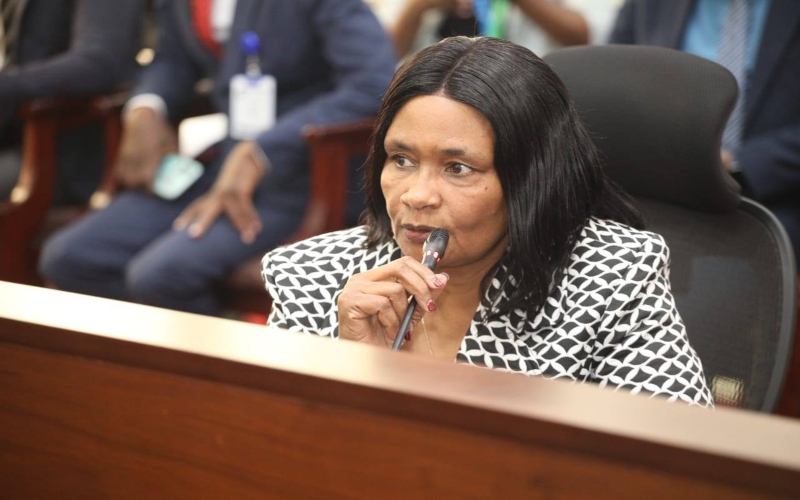Retailers to benefit as State moves to reduce number of business licences

The decision was made during a meeting between the ministry and the Retail Trade Association of Kenya (Retrak), where top officials from both sides agreed on the need to review current laws and systems.
Kenya is taking steps to ease the burden of running businesses by cutting down the number of licenses needed, in a fresh plan aimed at boosting the retail sector and attracting more investment.
Trade Cabinet Secretary Lee Kinyanjui said the government will work closely with private sector players through a joint multi-agency forum that will focus on reforming the licensing system, which has been blamed for making operations expensive and complex.
More To Read
- CS Kinyanjui: Kenya cannot develop while rejecting all funding options
- Eastleigh’s 24-hour economy key to Kenya’s commerce, says CS Lee Kinyanjui
- Tech drives Africa’s private capital boom as Q3 deals surge to Sh646 billion
- Kenya’s exports to EAC partners grow as diaspora sends Sh1 trillion home
- Kenya-UK trade hits Sh340 billion for the first time
- Unequal infrastructure slows county development, new index shows
The CS said the current setup forces some businesses like supermarkets to apply for up to 25 different licenses, which discourages growth.
The decision was made during a meeting between the ministry and the Retail Trade Association of Kenya (Retrak), where top officials from both sides agreed on the need to review current laws and systems.
In attendance were Retrak chairman Rupen Shah, CEO Wambui Mbarire, and key retailers including County Supermarket’s Annabell Njambi and Naivas’ Peter Kago.
“There is a large appetite by the government to implement reforms that will promote investment in the country. Kenya provides a stable environment for businesses for the long term,” Kinyanjui said.
The planned multi-agency meeting will involve county trade executives, the Council of Governors, the Kenya Revenue Authority, the Music Copyright Society of Kenya, and security agencies.
The goal is to remove overlapping roles between national and county governments and reduce revenue-related charges that often hit businesses operating in multiple counties.
Retailers raised concerns over the rising cost of compliance, especially due to duplicated fees and permits across counties.
They also pointed out that recent demonstrations caused major losses, with shops worth billions looted or burned, which highlighted the need for improved security.
Retail businesses in Kenya are required to hold a wide range of documents.
These include a business permit and fire inspection certificate, and others depending on the type of products sold, such as licenses from the Dairy Board, Kenya Bureau of Standards, NEMA, and the Pest Control Product Board.
Firms also need approvals from the Music Copyright Society of Kenya, the Kenya Association of Music Producers, and the Performers Rights Society of Kenya.
In some cases, retailers are required to get clearance from the Pharmacy and Poisons Board, Energy Regulatory Commission, and obtain signage permits, cook licenses, and approvals for loading zones.
The push to streamline all these requirements has also been backed by the County Licensing (Uniform Procedures) Bill, 2022, which is meant to create a common process for all 47 counties and make cross-county operations easier for businesses.
As part of the wider plan to grow Kenya’s investment profile, Kinyanjui also visited Tatu City, a 5,000-acre Special Economic Zone (SEZ), where he held talks with investors on the SEZ policy and how to attract more foreign companies to the country.
“With shifting global economic geopolitics, Kenya is increasingly becoming an investment destination for international companies, and SEZs like Tatu City offer a perfect plug-and-play opportunity for such firms,” he said.
Top Stories Today













































